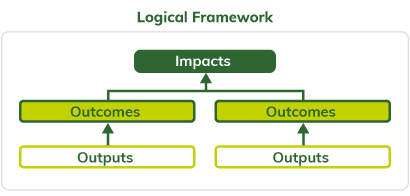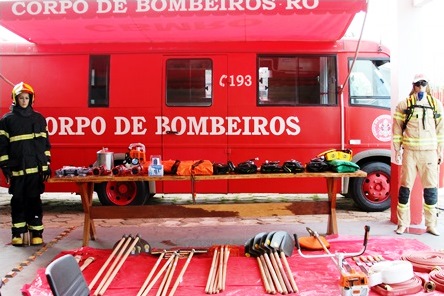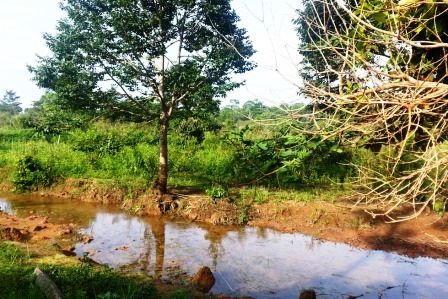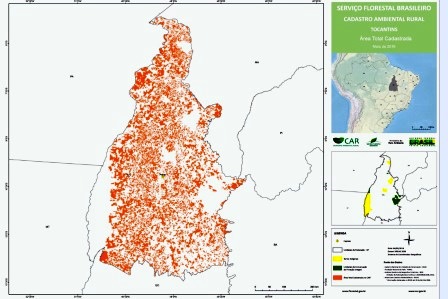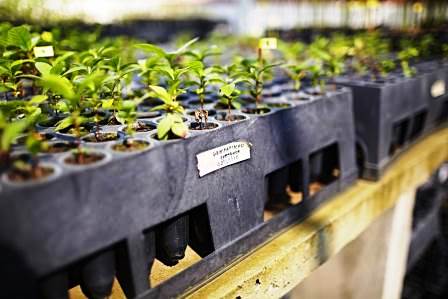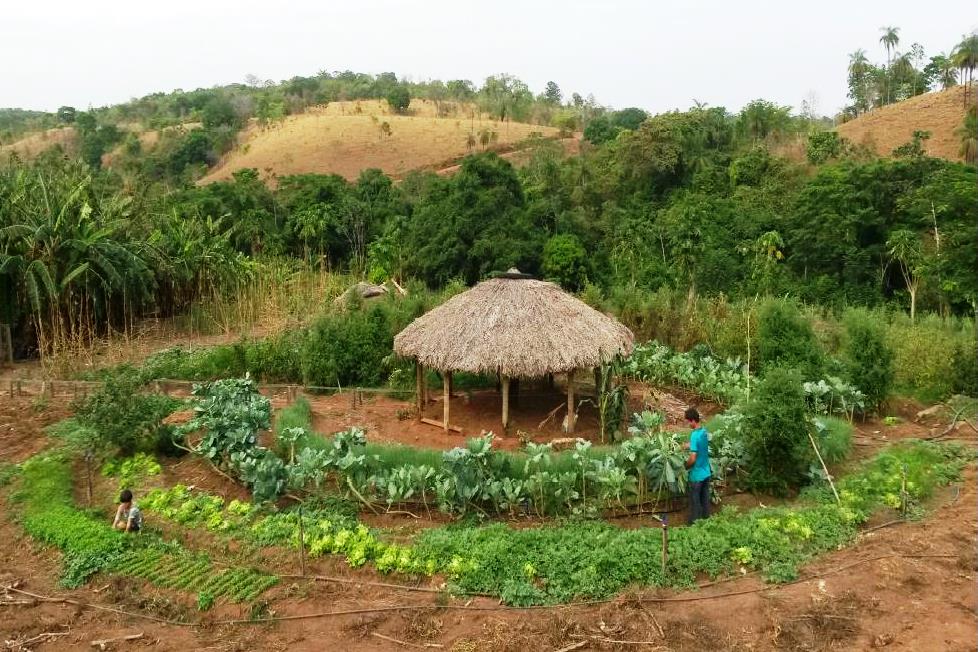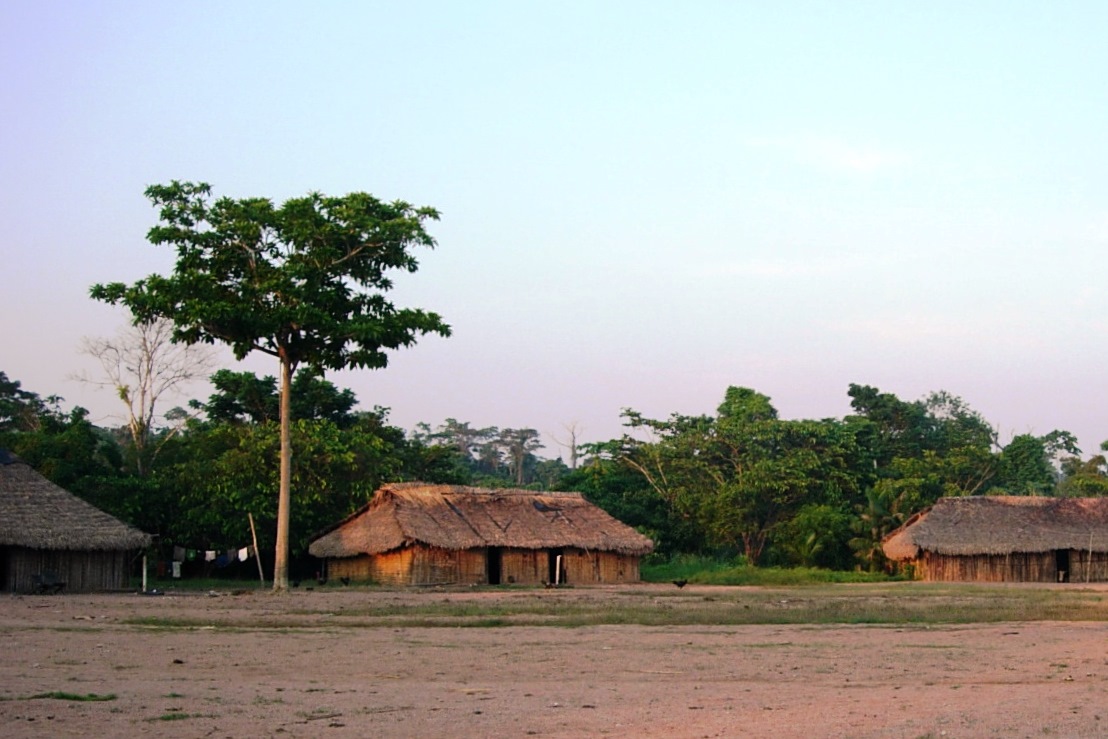ACTIVITIES CONDUCTED
With the aim of promoting the establishment and management of agroforestry gardens and systems, the Acre Pro-Indigenous People Commission (CPI-Acre) provided technical assistance to indigenous agroforestry agents (AAFI) from four TIs, in partnership with Acre’s Indigenous Agroforestry Agents Association (Amaaiac) and other local indigenous associations – Association of the Kaxinawá of the Breu River (Akarib), Shanekaya Village’s Shanenawa Indigenous Peoples Association (Shanekaya), Carapanã River’s Kaxinawá Farmers and Producers Association (Askpa) and Caucho’s Hunikui Producers and Agroextractive Association (Apach). The advisory provided also focused on strengthening other project action lines, especially solid waste management and rainwater harvesting.
The XXV Training Course for Indigenous Agroforestry Agents was held at the Forest Peoples Training Center in Rio Branco, attended by 33 AAFIs from 17 TIs, representing nine indigenous peoples. The XXVI Course is currently underway, with the participation of 40 AAFIs, of which 11 are preparing their final course monographs. Territorial and Environmental Management workshops were also held at the Kaxinawá/Asheninka of the Breu River TI, in the Vida Nova village, involving 63 participants from various local organizations, of which 18 were women and 15 residents of the TI’s surroundings, and at Katukina/Kaxinawa TI, in Shanê Kaya village, with 85 participants.
Two meetings of the project’s indigenous monitoring and evaluation commission were held; the first with the participation of twenty people and the second with 18 leaders from the eight TIs involved in the project. A Regional Coordination meeting was also held at the Kaxinawá of the Jordão River TI, with the participation of 59 people, 15 of which were residents of the TI’s surrounding extractive reserve (Resex) and 44 were members of the indigenous communities, including 12 women.
A monitoring and surveillance plan was prepared for the Kaxinawá/Asheninka of the Breu River, Kaxinawá of the Jordão River, Lower Jordão River and Seringal Independência TIs, detailing the schedule and logistics of surveillance expeditions, including the purchase of equipment such as boat and motor.
As part of the project’s territorial protection and surveillance actions, the communities of the Kaxinawa/Asheninka of the Breu River, Kaxinawa of the Lower Jordão River, Kaxinawa Seringal Independência and Kaxinawá of the Jordão River TIs carried out an important collective expedition to reopen and recover the trails and marks that indicate their territories’ boundaries. The project supported this expedition by purchasing the strategic equipment required (especially aluminum motorboats, cameras and GPS devices). The expedition found and registered various invasions of the TIs, mainly instances of timber extraction and opening of logging roads. The records made by the expedition members (georeferencing data and photographs) were formally handed over to the competent authorities, together with a report prepared by the indigenous consultants, in a meeting with representatives of Funai, the EB and the Federal Public Prosecutor’s Office.
A study on water access was carried and the involved communities determined in a collective decision-making process the location of the rainwater harvesting systems at the Katukina/Kaxinawá and Kaxinawá/Ashaninka of the Breu River TIs. A workshop on rainwater harvesting was held at the Kaxinawa of the Caucho Igarapé TI, with the participation of 64 people, including 14 women, four AAFIs, four Indigenous Health Agents and five Indigenous Sanitation Agents. Eight rainwater harvesting systems were installed, two in each village, benefiting ten families directly and 14 families indirectly.
A study was also made on the villages’ solid waste production/disposal/destination and visual materials were produced for use in training activities at the Katukina/Kaxinawá and Kaxinawá/Ashaninka of the Breu River TIs.
Indigenous consultants hired by the project were essential for the project’s successful outcomes. In coordination with agroforestry agents and other indigenous village leaders, these consultants played a key role in community mobilization, planning, organization and local logistics, as well as in the coordination required for carrying out the project activities.


